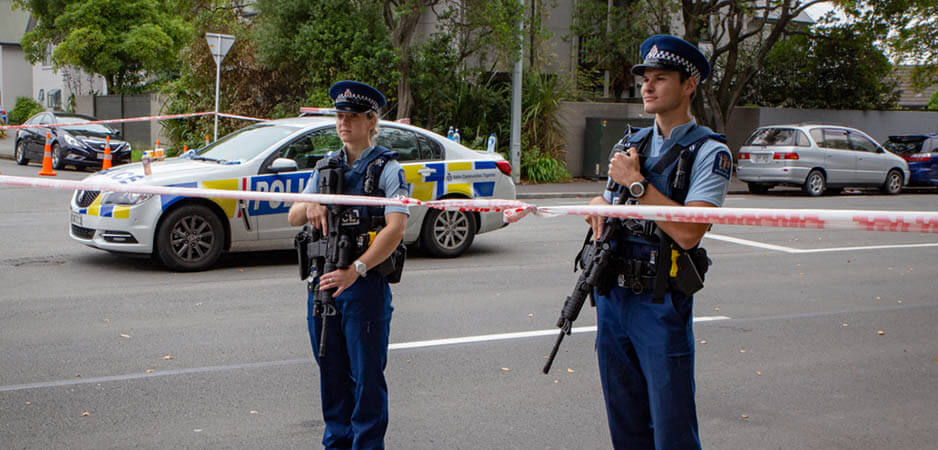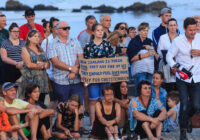The attacks in Christchurch were not the result of a random mental health victim on a rampage. They were calculated, cold and clinical.
As the fallout from the Christchurch terror attack becomes ever more pronounced, it is clear there are a number of matters that are important to state regarding what we know now but did not know at the time of the horrific incident on March 15.
In any sociological analysis of the causes of extremism and radicalization, it is a matter of fact that the background of the individual is scrutinized. In exploring patterns of socialization, identity formation as well as issues relating to alienation and exclusion, it is possible to get a handle on the development of an ideological perspective that leads an individual to pursue acts of horrendous violence in the name of some greater cause.
We have come to terms with the fact that the primary suspect, Brenton Tarrant, is a self-identified white supremacist, who viewed the world in Manichean terms. He regarded Islam and Muslims as a combined category of a movement and its people who are not merely a blot on the landscape, but who deserve to be depopulated. This is because, for Tarrant, they somehow present a risk to the survival of the white nation itself.
Of course, there is no perspective on the nature of this whiteness; that is, its own internal diversity or the historical legacies of class formation, colonialism, orientalism, Eugenicism or white nationalism that have defined the space occupied by whiteness. But this perspective is also an odd combination of it: There is palpable fear presented in relation to the ‘other,” whose motivations are to seemingly take over through population expansion. At the same time, there is a decrying of these “others” for their primitive, backward and hateful natures, thus seemingly legitimizing ethnic nationalism and white supremacism.
Islamophobia, Globalization and Multiculturalism
Some would regard this as a reality of Islamophobia. They would be accurate in this instance. Islamophobia is not merely a response to a sense of cultural dilution at the hands of some regressive other. It extends into notions of ethnic cleansing of these groups.
There is much to expand on the nature of the motivations of Tarrant, which align with the activities of other individual actors apparently acting on their own. All have carried out an act of ultra-violence in the name of defending against the loss of privileges associated with whiteness at one level, but also the fear of being overtaken by hordes of primitives. These kinds of ideas have motivated far-right extremists over the last few years in a number of places, including Norway, Canada, Britain and now New Zealand. The reasons for these are structural, cultural and political.
Over the last two decades in particular, men have faced considerable challenges to their positions in society, especially in the labor market and in educational terms. This is the result of the improving positions of women in these settings. But it is also because globalization means the average young white man has to compete far harder than ever before and where his privileged, urban, post-industrial patriarchy can no longer be sustained in the light of an increasingly interdependent world. The rage against the loss of supremacy results in the venting of a certain fury against these now significant others.
There was a time, well before the events of September 11, 2001, where multiculturalism and diversity were seen as assets that contributed to the wellbeing of nations, where differences among people result in an enriched lived reality that benefits all in the pursuit of human values. But multiculturalism became distorted when the political and media classes began to shift attention away from these notions because they associated the concept with a risk of polarization, radicalization and, ultimately, terrorism.
It is not beyond the realm of many who have a classical education to think that too much diversity can lead to the fragmentation of the nation itself. Alas, the experiment with diversity was over before it began, which has led to further polarization and entrenchment in various physical concentrations within urban spaces.
What social scientists will explore as the nature of downward social mobility, housing policies and gateways that limit access to certain forms of accommodation as explanatory factors in what leads to patterns of residential clustering, certain opinion makers and political voices would argue this outcome is solely an example of self-styled segregation.
This is a blatant falsehood and a deliberate misdirection. It ignores history, past public policy and ongoing patterns of social economic inequalities that affect all. And in the final domain, the question of politics has become far more pervasive than ever. Populism, nativism and ethnic nationalism go hand-in-hand as a ruse to mask the failures of domestic policy and the shenanigans of interventions in faraway lands — ones in pursuit of some greater foreign policy objective that routinely leads to catastrophe and destabilization in those spaces.
In the pursuit of attention-grabbing headlines, sensationalist messaging presented as newsworthy items and the bold ideological motivations of certain press barons, Islam and Muslims are demonized on such an extensive basis that to be Islamophobic is to be normal. It takes a critical mind to distance oneself from what politicians and media outlets are actually saying, but for the less-thinking individual, such words are gospel.
The attacks in Christchurch were not the result of a random mental health victim on a rampage. They were calculated, cold and clinical. Brenton Tarrant had a clear agenda — as he identified himself in his own writings. He aimed to sow fear and discord by broadcasting his actions all over the world. He alluded to eurocentric heroism, which borders on ethnic cleansing — i.e., a “kebab removalist.” The air, thick with Islamophobia, gave him the license he felt he could legitimately mobilize into political violence and terrorism. The sympathetic voices embolden some while radicalizing others. And, thus, the circle is complete.
*[A version of this article was featured on the author’s blog, and his new book, Islamophobia and Radicalisation — A Vicious Cycle, comes out in August 2019.
The views expressed in this article are the author’s own and do not necessarily reflect Fair Observer’s editorial policy.
Support Fair Observer
We rely on your support for our independence, diversity and quality.
For more than 10 years, Fair Observer has been free, fair and independent. No billionaire owns us, no advertisers control us. We are a reader-supported nonprofit. Unlike many other publications, we keep our content free for readers regardless of where they live or whether they can afford to pay. We have no paywalls and no ads.
In the post-truth era of fake news, echo chambers and filter bubbles, we publish a plurality of perspectives from around the world. Anyone can publish with us, but everyone goes through a rigorous editorial process. So, you get fact-checked, well-reasoned content instead of noise.
We publish 2,500+ voices from 90+ countries. We also conduct education and training programs
on subjects ranging from digital media and journalism to writing and critical thinking. This
doesn’t come cheap. Servers, editors, trainers and web developers cost
money.
Please consider supporting us on a regular basis as a recurring donor or a
sustaining member.
Will you support FO’s journalism?
We rely on your support for our independence, diversity and quality.





